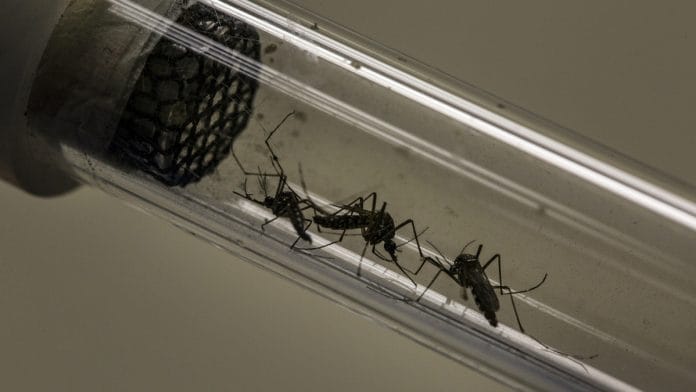New method to prevent mosquito bites
Mosquitoes tend to go into a food coma that could last for days after they’ve had their fill of blood. Often, the female Aedes aegypti mosquito, which spreads dengue and Zika, can suck up to twice her body weight in blood and rest for days. Scientists have discovered that using appetite suppressants could actually simulate the coma in mosquitoes, reducing the number of times they bite. The Atlantic has all the details.
Bajadasaurus, the dinosaur with a mohawk
Paleontologists have discovered a dinosaur in Bajada Colorada, Argentina, that appears to have had spines for protection running along its back, much like a mohawk. The unusual spikes of the dinosaur, which is believed to date back approximately 140 million years, were most likely meant for defensive purposes. Find an artist’s impression and more on Forbes.
2/3 of Hindu Kush Himalayan glaciers may go by the end of the century
In what is truly terrifying news, a comprehensive report has concluded that the Hindu Kush Himalayan region will lose 2/3rd of its glaciers if the Paris Agreement targets are not met. Worse, even if the targets are met, the mountains will lose 1/3rd of their glaciers. This will spell devastating consequences for a quarter of the world’s population. More details on NPR.
Earth’s magnetic north pole has officially shifted towards Russia
The Earth’s magnetic north, which has always been moving around a bit, has shifted solidly towards Russia. The World Magnetic Model was updated and released Monday. While the magnetic south has moved little, the north has hopped around for a while, and its speed has increased. More details on Nat Geo.
ESA’s Mars rover named after Rosalind Franklin, who helped discover DNA structure
Long neglected by history after her work was stolen by fellow scientists, Rosalind Franklin is increasingly becoming a fixture in the context of recognising the historic work put in by female scientists in their fields. As part of the ExoMars mission, Europe will name its next Mars rover after Franklin, a Briton. Historians of science have been quick to point out that ‘Rosy’ and other diminutives were condescending nicknames used for her by male colleagues, so the rover will be called ‘Rosalind Franklin’, with ‘Franklin’ the likely nickname. More on The Verge.






